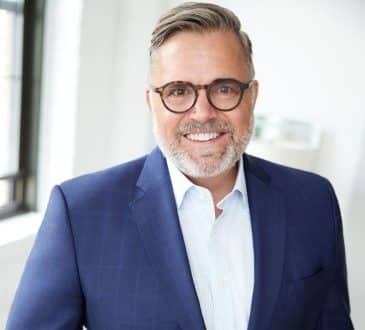The basic mistakes in Communication for tourism professionals

In my first article on the importance of Communication in the tourism industry, I chose to address common mistakes made by tourism professionals. Their main characteristic is that they are usually very undervalued but -at the same time- they cost a lot. The problem is that most people don’t care about small or at least common and obvious costs before, but do everything to avoid them when it’s too late.
Actually, effective communication is key in the tourism industry, where guests come from different cultures and backgrounds. Tourism professionals need to be able to navigate these differences and provide valuable information while maintaining a high level of customer service. Unfortunately, even the most seasoned professionals can make basic communication mistakes that can impact their guests’ experiences. In this article, we will explore some common mistakes that tourism professionals make and provide tips on how to avoid them.
Effective communication is crucial to ensure good service and a positive customer experience in the hospitality industry. Hospitality workers must prioritize communication skills to interact well with guests, address their concerns, and make them feel welcome. Personalizing communication to each guest’s style also speaks to the industry’s customer-first principle. Admitting mistakes transparently and updating guests on any difficulties in finding contact information builds trust and loyalty among customers. Preventing misunderstandings and errors through good communication also sets the foundations of professionalism and ethics in the industry. Everyone agrees that communication is the backbone of the hospitality industry, and mastering it can lead to better engagement, satisfaction, and repeat bookings.
More specifically, personalizing communication is a key factor in enhancing customer experience in the tourism industry. Customers expect individual attention and treatment, and personalized communication is the way to deliver this. By addressing guests by name and providing relevant information regarding their stay, tourism professionals can make guests feel appreciated and valued. Avoiding the use of SMS language or corporate jargon is important as it can create misunderstandings and impact the overall quality of communication.
One major issue in the industry is difficulty in finding contact information, which can lead to frustration and missed opportunities. To enhance organizational behavior and communication, it’s important to have expressive communication skills and prevent misunderstandings through good communication practices. Professional ethics and etiquette also play a key role in the tourism sector. Using a one-size-fits-all communication approach can be a pitfall and it’s important to tailor communication to each individual customer.
At this point, I would like to pause briefly to explain the writing style I follow when developing the main ideas of an article. Recently I received your messages – this gave me great joy! – with which you hinted to me that this “circular” – as you described it – way of writing helped you to understand the subject better and more in-depth. So this way of writing has emerged from university courses. Specifically, it has been shaped by the students’ questions in the initial planning/introduction of the course, which I return to answer at future more appropriate moments of the course, accompanying them with other materials, so that they can better understand the course based on their needs. So let’s get back to our analysis.
In the tourism industry, maintaining transparency is also crucial to building trust with customers. Admitting mistakes and showing accountability is a key components in achieving that. By acknowledging errors and taking responsibility for them, customers will be more willing to trust the organization and its employees. This can also lead to positive word-of-mouth marketing, as customers are more likely to recommend a business that is transparent and responsive to feedback. Good communication skills and professional ethics are also essential in the tourism industry to successfully navigate potential pitfalls and provide an exceptional experience for customers.
Locating contact information for hotels or restaurants can be another major issue, which can lead to lost business and decreased customer satisfaction. This problem can arise due to outdated or inaccurate information, lack of availability, or difficulty in accessing contact details. However, by employing effective communication strategies, such as ensuring all contact information is up-to-date and easily accessible, tourism professionals can avoid such troubles. This includes providing accurate phone numbers, email addresses, and social media handles that can be quickly accessed by potential customers. Additionally, training staff to respond promptly to inquiries and providing a streamlined communication process can alleviate difficulties in finding contact information.
To overcome the basic mistakes in communication for tourism professionals, it is essential to enhance organizational behavior and communication. This can be done by providing regular training to the employees, establishing baseline communication standards, and setting clear goals and objectives. However, expressive communication skills are equally important. These skills include written, oral, listening, non-verbal, and intercultural communication skills. By improving these skills, the service provider is better equipped to offer a more personalized and better tourism product. So the basic philosophy must be understood, which is as follows: Tourists from different parts of the world, speaking different languages and having different cultural backgrounds, visit tourist destinations. Misunderstandings and errors in communication between tourists and tourism professionals can spoil their vacation experience. It is important for tourism industry professionals to maintain good communication skills to prevent any miscommunication or errors. Adopting a positive attitude towards communication helps foster positive feelings of trust and respect. Awareness of cultural differences and adapting one’s communication style can also prevent misunderstandings. Using simple and clear language, and listening actively are essential communication skills.
It is imperative to clearly understand that professional ethics and etiquette play a crucial role in ensuring customer satisfaction and maintaining a positive brand image. Effective communication is key to enhancing customer experience and avoiding misunderstandings. However, it’s equally important for tourism professionals to behave in a polite, respectful, and professional manner when interacting with customers. This includes adhering to laws and regulations, committing to excellence, and avoiding rude or careless behavior that could reflect poorly on the business. The ability to be tactful and empathetic in communication is also important, as this can help diffuse any conflicts and leave customers feeling satisfied with their experience.
So we conclude that the tourism industry is comprised of various sectors that all play a critical role in providing an enjoyable and unforgettable experience for travelers. From transportation to accommodations, attractions, food and beverage, and event planning, all these different sectors work together to create an unforgettable tourism experience. Communication and coordination are key components that keep these sectors functioning together harmoniously. Without effective communication among these sectors, tourists may experience disappointment or frustration, leading to a negative reputation for the entire industry. Therefore, it is essential for tourism professionals to work collaboratively and communicate effectively to ensure that travelers have an incredible tourism experience.
Written by Fotis Pantopoulos.
Have you read?
Best Fashion Schools In The World.
Best Business Schools In The World.
Best CEOs And C-Suite Executives In The World.
World’s Most Influential and Innovative Companies.
World’s Best Hospitality And Hotel Management Schools.
Add CEOWORLD magazine to your Google News feed.
Follow CEOWORLD magazine headlines on: Google News, LinkedIn, Twitter, and Facebook.
This report/news/ranking/statistics has been prepared only for general guidance on matters of interest and does not constitute professional advice. You should not act upon the information contained in this publication without obtaining specific professional advice. No representation or warranty (express or implied) is given as to the accuracy or completeness of the information contained in this publication, and, to the extent permitted by law, CEOWORLD magazine does not accept or assume any liability, responsibility or duty of care for any consequences of you or anyone else acting, or refraining to act, in reliance on the information contained in this publication or for any decision based on it.
Copyright 2024 The CEOWORLD magazine. All rights reserved. This material (and any extract from it) must not be copied, redistributed or placed on any website, without CEOWORLD magazine' prior written consent. For media queries, please contact: info@ceoworld.biz
SUBSCRIBE NEWSLETTER








